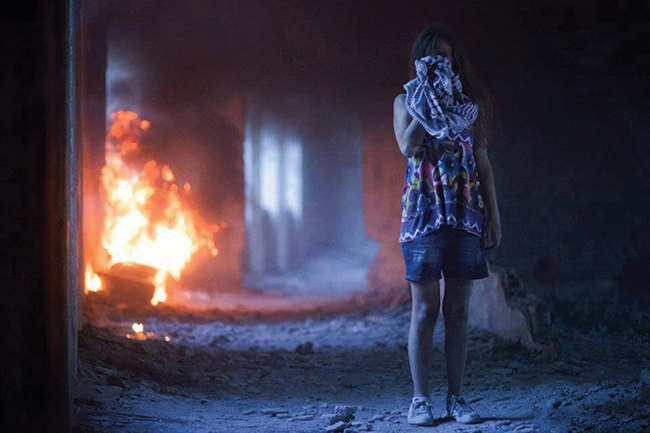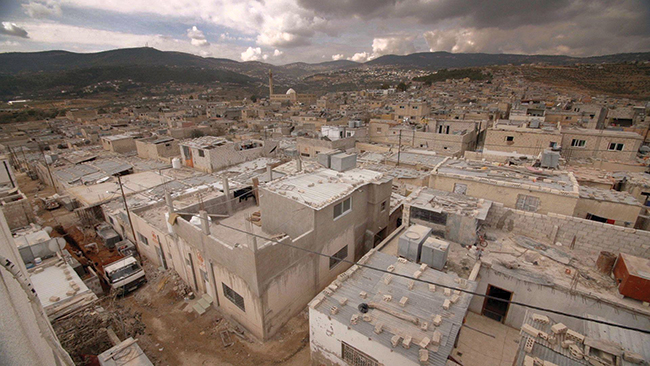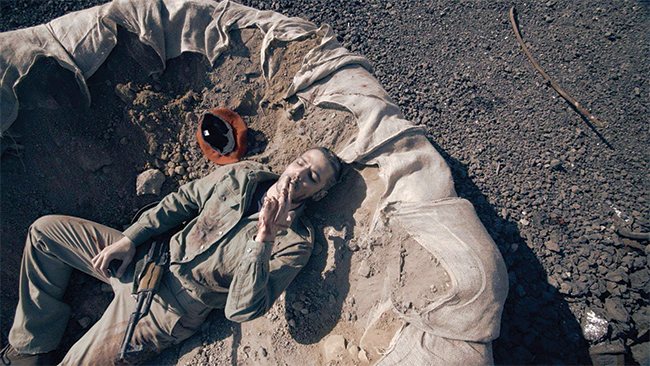We suffer from an incurable malady: Hope.
Mahmoud Darwish
By: Raneem Turjman
Remember Us is the debut feature documentary film by the Palestinian director Dalia Abuzeid. The film is set in Jerash Camp (also known as Gaza Refugee Camp) in Jordan, and is divided into five chapters that feature various characters who share their personal stories, each portraying the injustices faced by Palestinian refugees.
Gaza Refugee Camp was created in 1968 to accommodate the 11,500 Palestinians who fled as a result of the Six-Day War. That number has since increased and is now around 24,000 registered refugees. These refugees lack basic access to the rights that Jordanians enjoy. They are even denied a Jordanian passport and have to settle for a temporary Jordanian passport or a Palestinian passport. In addition, they lack the right to health care and education. Despite the hardships within the 0.75 km2 camp, the film focuses on the hopes, dreams, and ambitions of the individuals who live within its boundaries.
The characters share their stories in flashbacks and reenactments. Many of the scenes are shot in slow motion, which emphasizes the idea that Palestinian refugee camps are forgotten; that the standard of living within the camps will likely not improve; that they will always carry a memory; and that they are lost in time and space. Refugees cannot return to their homeland, Palestine, nor are they treated as citizens in their host country, Jordan.
Dalia’s beliefs and ideals are deeply rooted in the film, as she herself is a Palestinian who lives in Jordan. Her family fled Yaffa in 1948 and went to Gaza, where they were again forced out in 1968. Her father was 14 years old when they arrived in Amman. As a refugee, he was not allowed to attend public schools in Jordan. Subsequently, Dalia’s father settled for a tailor apprenticeship until eventually the laws were changed and allowed him and a handful of Palestinian refugees to gain access to education. He did not hesitate to seize the opportunity to better his own life by finishing high school and continuing his higher education in college – a privilege that few received.
Likewise, other characters in the film express their pride in the fact that they succeeded in life as a result of education despite their unbearable living situations. Abuzeid focuses on their choice to take positive action rather than succumbing to a life of misery and misfortune. She illuminates the characters’ hope despite the hardships they face as refugees: hope for Palestine, for their refugee camp, for their community, for their lives. And for their future.
This film is set apart from other Palestinian films because it shows the lives of a forgotten minority. There are not many films that deal with refugee camps in such a comprehensive way. This informative film touches on laws concerning refugees and human rights, yet it is not overbearing. It neither forces the viewer into a history lesson nor does it ask for sympathy. Rather, it gives life to the refugee camp and its inhabitants. It reveals their personal lives and their history rather than narrates an impersonal account of the stereotypical life of a refugee camp. The inhabitants’ hopes, dreams, and aspirations transcend the screen. The characters in the film and the other residents of the camp aspire to make a name for themselves…and not be forgotten.
Remember Us will be screened at Al Quds Cinema | Yabous Cultural Centre on Thursday, October 29, 2015 at 6:00 p.m.



